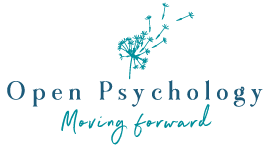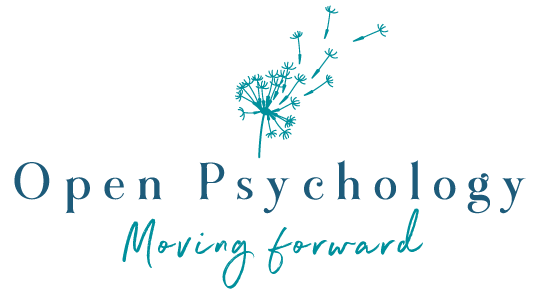Types of psychoeducational assessments
What assessments are offered?
At Open Psychology we carry out a wide variety of assessments in both English and Spanish. Our professionals offer the possibility of carrying out the evaluations on the school’s premises, always with prior agreement.
A process by which a child’s cognitive abilities (verbal comprehension, visuospatial, fluid reasoning, working memory and processing speed) are assessed.
Standardised tests are used to measure cognitive performance and provide information about a person’s strengths and weaknesses. This allows us to understand the child’s cognitive functioning and design support or intervention strategies according to individual needs or simply help them to further develop their abilities.
In addition to the cognitive assessment mentioned above, we add the socio-emotional assessment of the child.
This assessment measures numerous emotional and behavioural aspects (adaptive and maladaptive) of children and adolescents.
Through a multi-method and multidimensional assessment (questionnaires are administered to parents, teachers and children/adolescents), emotional well-being and the ability to establish and maintain healthy relationships are assessed. The aim is to understand the child/adolescent’s social-emotional competence and to provide guidance for the development of interpersonal and emotional skills.
This assessment consists of evaluating the cognitive and socio-emotional abilities and assessing the functioning of the executive functions (organisation, anticipation, planning, working memory, mental flexibility, self-regulation, inhibition and behavioural control).
With this assessment we would be able to confirm or rule out whether a child or adolescent has Attention Deficit Disorder, with or without hyperactivity (ADHD) and thus be able to develop a treatment plan tailored to specific needs.
A cognitive assessment (mentioned above) and an evaluation of academic skills (reading, writing, oral language, and mathematics) is conducted. Standardised tests are used to gain a thorough understanding of a student’s abilities and challenges, allowing for the implementation of effective and personalised curricular adaptations.
Specific learning difficulties can also be ruled out or confirmed through this assessment.
This combination (previously described) allows us to confirm or rule out both the diagnosis of attention deficit disorder with or without hyperactivity, and different learning difficulties. By making this differential diagnosis, specific interventions and curricular adaptations can be implemented to maximise the child’s potential.
With this assessment pack, academic skills are assessed, as well as socio-emotional skills (both previously explained).
On many occasions, psycho-educational difficulties have an impact on the child’s socio- emotional area, and vice versa. Therefore, having a better knowledge of both areas allows for a global assessment that will help the child to improve not only their academic performance, but also their general wellbeing.
With this assessment, not only would the child’s cognitive abilities be assessed, but also the child’s linguistic and communicative development.
With this assessment, not only would the child’s cognitive abilities be assessed, but also the child’s linguistic and communicative development. The aim is to identify possible language delays or disorders, such as difficulties in verbal expression or comprehension. This assessment is crucial in order to intervene early and provide appropriate support, improving language skills and facilitating effective participation in educational and social settings.
This assessment allows us to confirm or rule out an Autism Spectrum Disorder (ASD).
On many occasions, there are doubts whether a person’s behaviour may or may not be on the spectrum. Individuals from 12 months to adulthood can be assessed on their communication skills, social interaction, restricted and repetitive behaviour and imaginative use of objects, using the most reliable standardised tests for the detection of ASD.
The assessment of selective mutism measures the difficulties of a person to be able to speak in different situations and with different people. With this assessment, a differential diagnosis is made, allowing the elaboration of an individualised intervention.
{
"@context": "https://schema.org",
"@type": "LocalBusiness",
"name": "Open Psychology",
"url": "https://openpsychology.es/en/adolescents-and-child-psychology/",
"image": "https://openpsychology.es/wp-content/uploads/2023/11/logo-open-psychology.png",
"description": "Child and adolescents psychology in Madrid and Majadahonda. English speaking child psychology Madrid",
"address": [
{
"@type": "PostalAddress",
"streetAddress": "Paseo Eduardo Dato nº19, 1ºizq. (Centro Aesthesis)",
"addressLocality": "Madrid",
"addressCountry": "ES",
"postalCode": "28010"
},
{
"@type": "PostalAddress",
"streetAddress": "Calle Doctor Calero 44 (Centro Vedana)",
"addressLocality": "Majadahonda",
"addressCountry": "ES",
"postalCode": "28220"
}
],
"telephone": "623 519 703",
"email": "info@openpsychology.es",
"openingHours": "Mo-Fr 09:00-20:00",
"priceRange": "€€",
"medicalSpecialty": ["Psychology", "MentalHealth"],
"provider": [
{
"@type": "Person",
"name": "Itxaso Cembrero Tercero",
"jobTitle": "Psychologist",
"affiliation": "Open Psychology",
"sameAs": ["https://www.linkedin.com/in/itxaso-cembrero-8a42602b/?originalSubdomain=es"]
},
{
"@type": "Person",
"name": "Lidia Budziszewska",
"jobTitle": "Psychologist",
"affiliation": "Open Psychology",
"sameAs": ["https://es.linkedin.com/in/lidia-budziszewska-phd-66317726"]
},
{
"@type": "Person",
"name": "Miriam Mower Hanlon",
"jobTitle": "Psychologist",
"affiliation": "Open Psychology",
"sameAs": ["https://es.linkedin.com/in/miriam-mower"]
},
{
"@type": "Person",
"name": "Silvia de Horna Troncoso",
"jobTitle": "Psychologist",
"affiliation": "Open Psychology",
"sameAs": ["https://openpsychology.es/en/who-are-we/silvia-de-horna-troncoso/"]
},
{
"@type": "Person",
"name": "Marta Gray Núñez",
"jobTitle": "Psychologist",
"affiliation": "Open Psychology",
"sameAs": ["https://openpsychology.es/en/who-are-we/marta-gray-nunez/"]
},
],
"knowsLanguage": ["English", "Spanish"],
"serviceType": "Psychological Therapy for Children and adolescents",
"offers": [
{
"@type": "Offer",
"price": "85",
"priceCurrency": "EUR",
"eligibleRegion": {
"@type": "Place",
"name": "Madrid"
},
"availability": "https://openpsychology.es/en/make-an-appointment/",
"name": "Child and adolescents session in-person"
},
{
"@type": "Offer",
"price": "75",
"priceCurrency": "EUR",
"eligibleRegion": {
"@type": "Place",
"name": "España"
},
"availability": "https://openpsychology.es/en/make-an-appointment/",
"name": "Online child adolescent session"
}
],
"potentialAction": {
"@type": "ReserveAction",
"target": {
"@type": "EntryPoint",
"urlTemplate": "https://openpsychology.es/en/make-an-appointment/",
"actionPlatform": [
"http://schema.org/DesktopWebPlatform",
"http://schema.org/MobileWebPlatform"
]
},
"name": "Book an appointment"
}
}






